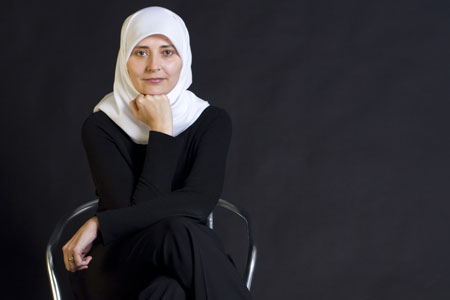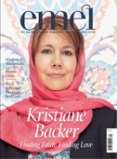
The Scourge of Tribalism
Issue 96 September
“We have to be the people, ennobled by faith, who are the voice of conscience for the world.”
“We are being slaughtered”, “Wake up!”, “Muslims are being persecuted again!” Facebook and Twitter are buzzing with calls for action in Burma about the Rohingya and Muslim Rakhine. Burma has fast been added to the list of “Muslim causes”, but who exactly is this “we”? And what is it we have to wake up to?
The social media momentum was based on real reports, but fuelled with some false images, one of which purported to show Buddhist monks standing over the bodies of massacred Muslim Rohingya, but was actually an image from the 2010 China earthquake; another image was declared to be of a Muslim being set on fire in Burma, whereas it was an image of a Tibetan activist who set himself on fire. However, there is real suffering of Muslims in Burma. Amnesty International has detailed physical abuse, rape, destruction of property, and unlawful killings by Rakhine Buddhists and security forces. Our heartfelt concern is necessary, as the Prophet reminded us, “The Believers, in their mutual love, mercy and compassion, are like one body: if one organ complains, the rest of the body develops a fever.”
Burma has been an issue that has concerned me for a long time, despite criticism by some individuals who thought I should be focussing only on “Muslim issues”, such as Kashmir and Palestine. Five years ago, there was a ten-page feature in emel on the oppression in Burma. We wrote that the Rohingya are “amongst the most persecuted people on the planet”, but it did not generate much outrage. After all, Burma was not “our” problem.
Burma is “our” problem not just because the Rohingya are Muslim, but because human beings—regardless of faith—have been persecuted for decades. The Qur’an reminds, “Whosoever saves the life of one person, it shall be as if he had saved the life of all mankind”. (5:32) In this respect, the Qur’an does not make any distinction between people’s faith. If we are not concerned with all of human life, then that is clearly contrary to the Qur’anic message.
God emphatically describes the mission of the Prophet, “We have not sent you except as a mercy to all the worlds”. (21:107) The Prophet was not sent as a terror, as a scourge, as a slayer—but as a mercy. And a mercy to whom? To his tribe, the Quraysh? To the Arabs? To the Muslims? No, to everyone. Tribalism is firmly rejected, yet we revived the “Muslim tribe”. And we indulge in an orgy of victimhood, wallowing in the narrative of our persecution.
Yes, we need to wake up, but we need to wake up to a world of suffering. We need to proclaim loudly our shared humanity. True dedication to the message of the Prophet requires genuine concern for all people. We should rush to prevent suffering and persecution anywhere in the world and not confine ourselves to narrow-minded parochialism, and only jump to action when “one of ours” is in trouble. The poor, the weak, the dispossessed are all victims of indifference, global power play, inequity, and corporate greed—but they are victims regardless of their faith or colour or nationality.
This victim mentality is threatening the Muslim ummah right now. It is actually disempowering; it is paralysing. It turns a proud, dynamic and global message of justice and engagement into one of self-pity and self-interest. It has imprisoned us in helplessness.Whereas the message of Islam—which was initially accepted by the persecuted people of Arabia—the women, slaves, and the poor—ennobled them, and made otherwise ordinary individuals make extraordinary choices. It turned ordinary people into heroes, whose names we mention in awe to this day.
But we seem unable to transcend the self-imposed tribalism of our faith. We do not have the confidence to stand as global citizens and speak as global leaders. We do not have the passion in our bellies for anything other than a defeatist, “We are being humiliated”.The situation in Burma needs our support and action; it has needed it for a long time. The situation in Tibet needs our attention. In the Democratic Republic of Congo the war over ‘blood minerals’ has killed 5.4million people since 1998, and 45,000 people continue to die every month. But it is too inconvenient for us to question the source of the minerals in our mobile phones, laptops and digital cameras, especially since the victims are not from “our” tribe. The Prophet was clear however, “He is not one of us who calls to tribalism. He is not one of us who fights for the sake of tribalism. He is not one of us who dies following the way of tribalism.”
If we want to walk in the footsteps of the Prophet, if we want to live out the message of the Qur’an, then we have to realise that we have to be more than just Muslims concerned about “Muslim issues”. We have to be the people, ennobled by faith, who are the voice of conscience for the world.
Bookmark this |
|
Add to DIGG |
|
Add to del.icio.us |
|
Stumble this |
|
Share on Facebook |
|
Share this |
|
Send to a Friend |
|
Link to this |
|
Printer Friendly |
|
Print in plain text |
|

